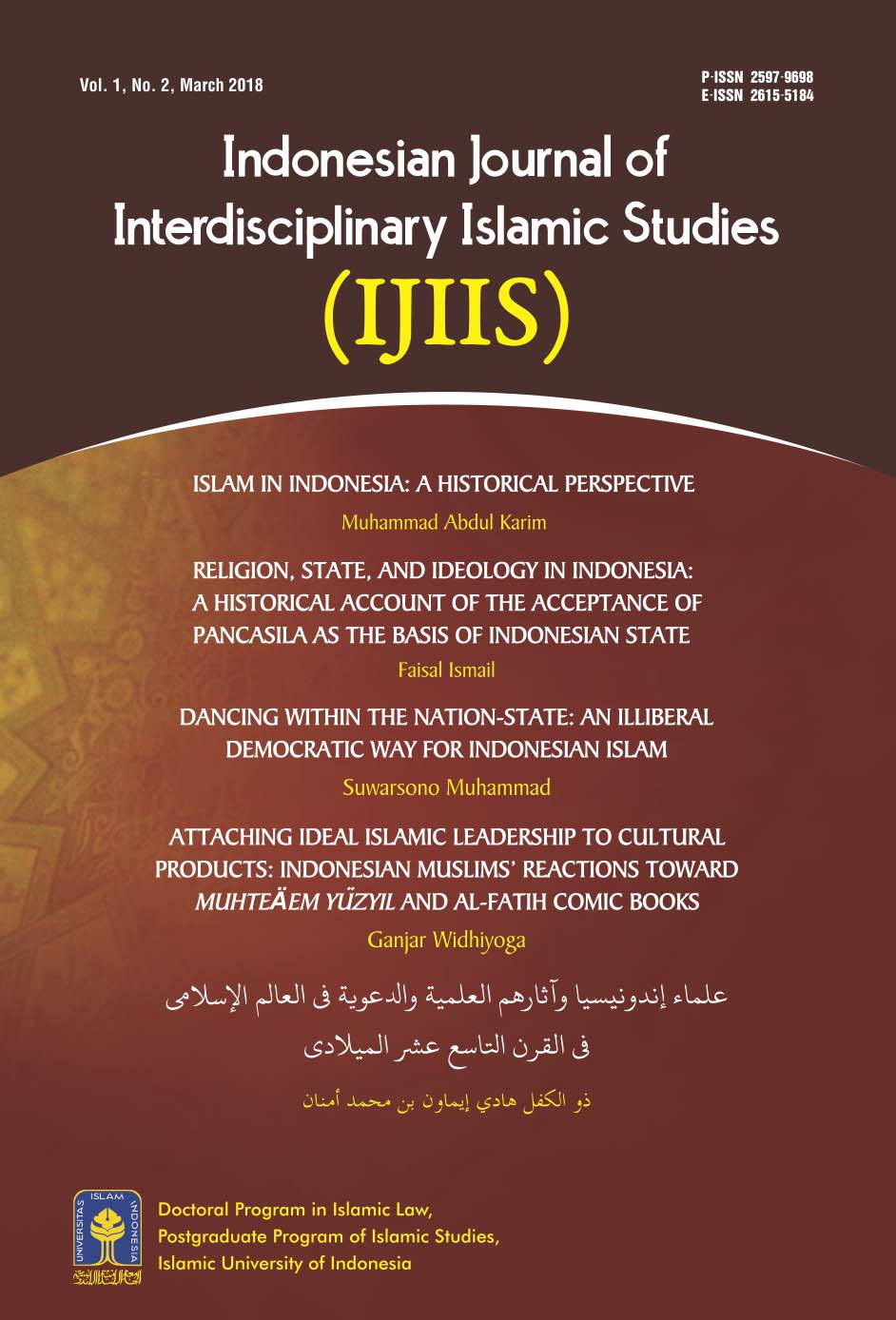Main Article Content
Abstract
Islam is a world phenomenon. Since 1979, world—especially the West—had never missed the chance to continually keep an eye on countries with Islamic background. It is especially those which were related to the development of Islamic politics—commonly labeled as Islamist or Islamism (see Hamid, 2016; 2015). The 911 bombing in United States had made the West became a lot more aware. Arab Spring, which started in 2011, and the emergence of ISIS have nurtured the West’s interest on Islamic movement. The East had also started to learnt, with much lower intensity. Religion can no longer be marginalized in political realm, as by far shown in secularized and modernized world’s project. Religion – along with ideology and identity – becomes a significant variable in analyzing and formulating a policy. Religion matters. In the past, three aforementioned factors were mostly seen as merely dependent “epiphenomenal” factor, an effect of other materialized factors. In the Middle East, especially, Danahar (2014:3) satirically says that “Religion, not nationalism or Arabism, is now the dominant force.” He also convincingly adds that “God has returned to the Middle East.” In addition, (God) plans to stay for some time. Islam, at present, simply put, is long lasting.
